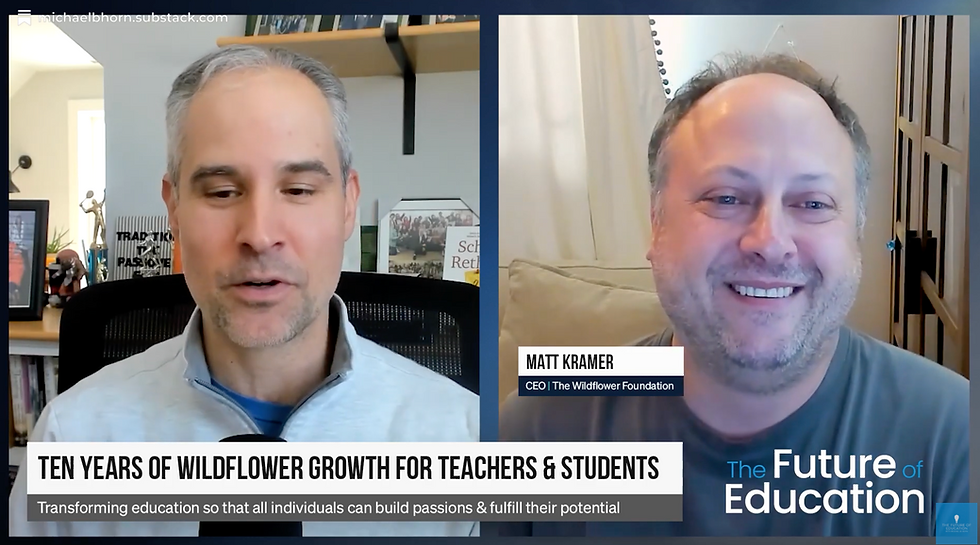Wildflower Parent: Relationships at the Heart of Montessori
- Wildflower Schools

- Apr 7, 2017
- 2 min read
Updated: Feb 14, 2024

Human relationships, especially deep ones, always contain mystery. My five-year-old son is known, but unknown. He is tethered to my heart, but utterly separate and different in temperament. He is generous, intense, energetic, sensitive and deeply perceptive, but his patience for a classroom other than nature seems limited. I marvel at him and sometimes worry; I question and research what is best; in the end, I always return to love, the essence of the relationship between mother and child.
It was the beauty of relationships that first drew me to Montessori: the profound respect for the dignity and independence of the child, the integral cooperation between parents and teachers, and the acknowledgement of the complexity of each child’s own evolving social relationships with family, peers, teachers, and the adult community at large. Effective education is rooted in relationships, and these relationships are the heart of Montessori.
My husband and I wanted our son’s preschool to kindle a lifelong love of learning. As his first teachers, we tried to create a beautiful learning environment at home, sharing the loveliness of the quotidian and encouraging his insatiable curiosity through sensorial experiences and nature. As he matured, we sought guidance in an educational philosophy that offered practical applications at home. We read about Maria Montessori and arranged to visit the original Wildflower Montessori School, which made us feel that we had come “home.” Home to a school that concretely values a seamless learning community between home and school by helping to educate parents on the inevitable challenges of parenthood and by deliberately weaving us into the fabric of the classroom.
Whenever I enter a Wildflower Montessori classroom, I witness beauty and peace, as well as lessons in grace and courtesy for those not-so-peaceful moments. I appreciate how the work moves from the concrete to the abstract, thereby allowing children to interact with concepts through tactile experiences. I also value the intentionally prepared child-oriented environment where, based on careful observations, the teachers attend to each child’s unique developmental needs and interests with tried and tested materials.
As a relationship is forged, the child’s observed interests become like gentle bridles that the teacher can use to guide and engage the child effectively. The children are allowed remarkable independence and freedom in the classroom. They are free to do good: to work, to be kind, to respect others. It’s a worthy and essential model for relationships in our world today.
Like the germination of seeds, the relationships in this community of learning require patience and faith. My experience with Montessori has taught me to observe my son intently, to respect his distinct temperament and development, and to create an environment that allows for his growth. We parents and teachers can collaborate to prepare a nourishing environment of love and respect, but then we must wait, watch and trust the child to do the actual growing. I am grateful to the Wildflower Montessori network of teachers and families for creating relationships rich in respect and love wherein our children can freely learn, grow and ultimately flourish– like wildflowers.
Robin Blesius and her husband, Carl, helped found Violeta Montessori School, the Spanish-English dual immersion Wildflower school in Cambridge, Massachusetts.



